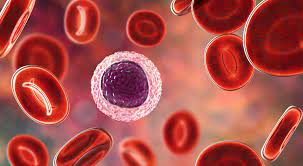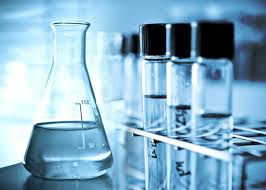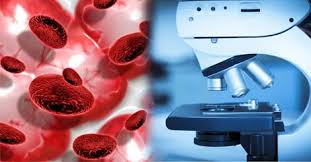Blood cancer is also called leukemia in medical terms, leukemia usually occurs in the blood-forming tissues i.e., it starts from the bone marrow the place where blood cells are formed, bone marrow is the soft material found in the center of the bone. Bone marrow makes the stem cells which then mature and become three types of blood cells in our body which are red blood cells, white blood cells, and platelets. So, blood cancer occurs when these abnormal cells grow rapidly interrupting the function of healthy red, white, and platelet cells. Blood cancer affects both the functioning and production of blood cells, it also affects the immune system of your body.

Types of blood cancer:
There are three main types of blood cancer called as leukemia, lymphoma, and myeloma.
1)Leukemia:
Leukemia occurs in the bone marrow where abnormal white blood cells are formed rapidly and disturb the functioning of red blood cells and platelets. It is seen mostly in teenagers and children. Leukemia may be chronic or acute. The symptoms of leukemia include fever, nose bleeding, weight loss, bone pain, etc.
2)Lymphoma:
Lymphoma occurs in the lymphatic system which is a part of the immune system of the body. There are two types of lymphoma which include Hodgkin lymphoma: presence of reed-stenberg cells and non-Hodgkin lymphoma: absence of reed-stenberg cells. They can occur in lymph nodes, spleen, bone marrow, and any other organs.
3)Myeloma:
Myeloma also known as multiple myeloma occurs in the plasma cells of white blood cells. In the case of myeloma, the abnormal plasma cells grow rapidly disrupting the function of healthy blood cells throughout the body. Myeloma can often lead to a weakened immune system, anemia, kidney failure weakened bones, etc.
The most common causes of blood cancer include:
1)Hereditary:
A few genetic mutations or inherited conditions from any of your blood relations may cause blood cancer.
2)Chemical exposure:
Exposure to certain highly dangerous chemicals, radiation, and toxins may also increase the risk of cancer. The chemicals that mainly increase your risk of having blood cancer are benzene, ethylene oxide, formaldehyde, and vinyl chloride. So be careful while working with any of those chemicals.

3)Weakened immune system:
Health issues that weaken your immune system such as HIV/AIDS or any autoimmune diseases increase the risk of blood cancer.
4)Past treatment of cancer:
If you had a cancer treatment prior such as radiation, or chemotherapy then that may be a cause of blood cancer. Other than these smoking, alcohol consumption, genetic disorders, and blood transfusions may also be a cause of blood cancer.
What are the symptoms of blood cancer?
Coming to symptoms acute blood cancer may not show any symptoms but in the case of chronic blood cancer symptoms are seen. Mostly seen symptoms of blood cancer include:
1)Fatigue and weakness:
People with blood cancer feel very weak and tired and they can not do their daily activities also.
2)Fever, headache, loss of appetite, and nausea are also seen more frequently in people with blood cancer.
3) Weight loss:
People with blood cancer experience rapid weight loss without any underlying issues.
4)Night sweats:
Frequent night sweats wetting the clothes and the bed more often is also a sign of blood cancer.

5)Bone/joint pain due to weakened immune system and weakened bones.
6)Frequent infections that may be viral, bacterial, or anything due to blood cancer.
7)Due to reduced red blood cells you may experience shortness of breath and pale skin.
8)Whenever you have a cut or injury you will experience continued bleeding or a blood clot
9)Abdominal discomfort or abdominal pain is also a symptom of blood cancer.
10)Itchy skin or skin rashes and pale skin are also signs of blood cancer.

How blood cancer is diagnosed?
If you are experiencing signs or symptoms mentioned above you need to visit a doctor as soon as possible. The doctor will diagnose the disease with a few tests which include:

1)Blood tests:
In blood tests, there are two types of diagnostic procedures:
a)Complete blood count test:
This is done to evaluate the total number of red blood cells, white blood cells, and platelets.
b)Peripheral Blood Smear:
It is done to see the smear in the microscope and find the abnormalities in the blood cells.
2)Biopsy:
After the blood test if there is a presence of blood cancer in your body then a biopsy is done by taking a small sample from bone marrow using a tissue for a clear examination of your stage and condition.
3)Imaging tests :
Such as CT scans, MRIs, PET scans, and X-rays are also done to check the level of disease in your body and what are the parts affected by the disease.
The disease is diagnosed using the above-mentioned tests by a medical professional and the treatment is given based on your health history, stage of the disease, and your body condition.
Treatment procedure and preventive measures for blood cancer:
1)Stem cell transplantation:
Healthy stem cells from the bone marrow are replaced with abnormal or damaged blood cells. The healthy stem cells are collected from the patient's body or the donor.
2)Chemotherapy:
Chemotherapy involves the use of high-dose drugs to stop cancer cells from growing. It also kills the cancer cells from further development.
3)Radiation therapy:
It destroys the cancer cells using high-energy rays relieving the pain. It may also be done as targeted therapy by targeting a few parts of the body that are majorly affected.
4)Surgery:
Usually, surgery is done to remove the enlarged lymph nodes or affected tissues. Surgery may not be the primary treatment option for blood cancer unless and until it is chronic.
Preventive measures:
1)Avoid alcohol consumption and smoking to reduce the risk of blood cancer.
2)Do make a habit of eating healthy food, you may have lost appetite but try to consult a nutritionist who can better help you with a healthy diet plan.
3)Maintain a healthy weight that will help you in reducing the risk of blood cancer.
4)Be careful about infections in any part of your body.
5)Avoid overexposure to chemicals and radiations that are more powerful.
6)Do follow regular doctor checkups that will help you understand the stages and treatment for the condition.
Over a million people are diagnosed with blood cancer nowadays, but the healthcare industry is also helping people generously by providing them with the best treatment options and increasing their survival rates. So do have the positivity in yourself and get over the cancer by following all essential care that you should take.
